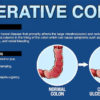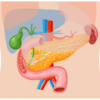Remedies for Viral Infections: Managing Flu and Cold Sores
Remedies for Viral Infections: Managing Flu and Cold Sores are common ailments that can cause considerable discomfort. While there’s no cure-all for these infections, there are several effective remedies and strategies you can employ to alleviate symptoms and promote recovery. This blog will explore practical remedies for both the flu and cold sores, providing you with a comprehensive guide to managing these viral challenges.
Understanding Viral Infections

Before delving into remedies, it’s crucial to understand the nature of the viruses causing these conditions.
- Influenza (Flu): The flu is caused by influenza viruses, which infect the respiratory tract. Symptoms include fever, cough, sore throat, body aches, fatigue, and sometimes gastrointestinal issues. The flu is highly contagious and can lead to complications, especially in young children, the elderly, and those with weakened immune systems.
- Cold Sores: Cold sores, also known as fever blisters, are caused by the herpes simplex virus (HSV-1). They manifest as small, painful blisters on or around the lips. HSV-1 is highly contagious and can be triggered by factors such as stress, sunlight, or a weakened immune system.
Remedies for the Flu
1. Rest and Hydration
Rest: One of the most effective ways to recover from the flu is to give your body adequate rest. Sleep helps your immune system function optimally and speeds up recovery.
Hydration: Fluids are essential for maintaining hydration and thinning mucus. Drink plenty of water, herbal teas, and broths. Avoid caffeinated and alcoholic beverages, as they can dehydrate you.
2. Over-the-Counter Medications
Pain Relievers and Fever Reducers: Medications such as acetaminophen (Tylenol) or ibuprofen (Advil, Motrin) can help reduce fever and alleviate body aches.
Decongestants and Antihistamines: These can provide relief from nasal congestion and other respiratory symptoms. However, consult a healthcare provider before using these, especially for children.
3. Home Remedies
Steam Inhalation: Inhaling steam can help relieve nasal congestion and soothe the respiratory tract. You can use a bowl of hot water or a steam inhaler.
Honey and Lemon: A warm drink made from honey and lemon can soothe a sore throat and may have mild antiviral properties. Honey also has natural antibacterial qualities.
Ginger and Garlic: Both ginger and garlic have antiviral and anti-inflammatory properties. Adding them to your diet or consuming them as teas may help support your immune system.
4. Nutrition
Eat a Balanced Diet: Focus on a diet rich in fruits, vegetables, lean proteins, and whole grains. Foods high in vitamin C, such as citrus fruits and bell peppers, can support immune function.
Avoid Heavy Meals: When you’re sick, heavy or greasy foods can be hard to digest. Stick to lighter, easily digestible foods until you feel better.
5. Seek Medical Advice
If your flu symptoms are severe or if you are at high risk for complications (e.g., you are elderly, pregnant, or have chronic health conditions), consult a healthcare provider. Antiviral medications may be prescribed if you seek medical attention early in the course of the illness.
Remedies for Cold Sores
1. Antiviral Medications
Topical Antiviral Creams: Over-the-counter creams containing docosanol (Abreva) can help reduce the duration and severity of cold sores. Apply them at the first sign of an outbreak for best results.
Oral Antiviral Medications: For severe or recurrent outbreaks, prescription antiviral medications like acyclovir, valacyclovir, or famciclovir may be recommended. These medications can reduce the frequency and severity of outbreaks.
2. Home Remedies
Cold Compress: Applying a cold, damp cloth to the affected area can help reduce swelling and pain.
Aloe Vera: Aloe vera has soothing and antiviral properties. Applying aloe vera gel to the cold sore may help alleviate symptoms and promote healing.
Lemon Balm: Lemon balm, an herb with antiviral properties, can be applied topically in the form of a cream or ointment to help reduce the duration of an outbreak.
3. Lifestyle and Preventive Measures
Avoid Triggers: Cold sores can be triggered by factors such as stress, excessive sun exposure, or hormonal changes. Identifying and avoiding your triggers can help manage outbreaks.
Sun Protection: Use lip balm with SPF to protect your lips from the sun, which can trigger cold sores.
Good Hygiene: Practice good hygiene to prevent the spread of HSV-1. Avoid touching your cold sores and wash your hands frequently. Avoid sharing utensils, towels, or lip products.
4. Diet and Supplements
Lysine: Lysine is an amino acid that may help prevent and manage cold sore outbreaks. It is available in supplement form and can also be found in foods like dairy products and fish.
Avoid Arginine: Arginine is another amino acid that may promote HSV replication. Reducing your intake of arginine-rich foods (such as chocolate and nuts) during an outbreak may be beneficial.
General Tips for Managing Viral Infections
1. Boost Your Immune System
A strong immune system can help your body fight off viral infections more effectively. Consider incorporating the following practices into your routine:
- Exercise Regularly: Moderate exercise can boost immune function.
- Get Adequate Sleep: Aim for 7-9 hours of quality sleep each night.
- Manage Stress: Chronic stress can weaken your immune system. Techniques such as meditation, deep breathing, and yoga can help manage stress levels.
2. Practice Good Hygiene
Good hygiene is crucial in preventing the spread of viral infections. Wash your hands frequently with soap and water, especially before eating or touching your face.
3. Stay Informed
Stay informed about vaccination options for viral infections like the flu. Annual flu vaccines can help protect you from the most common strains of the virus.
Conclusion
Managing viral infections such as the flu and cold sores involves a combination of rest, proper hydration, medication, and lifestyle adjustments. While there is no one-size-fits-all remedy, employing these strategies can help alleviate symptoms, speed up recovery, and reduce the frequency of outbreaks.
Remember that while home remedies and over-the-counter treatments can be effective, it’s essential to seek medical advice if your symptoms are severe or persistent. By taking a proactive approach to managing these infections, you can improve your quality of life and reduce the impact of these common viral ailments.








Leave a reply